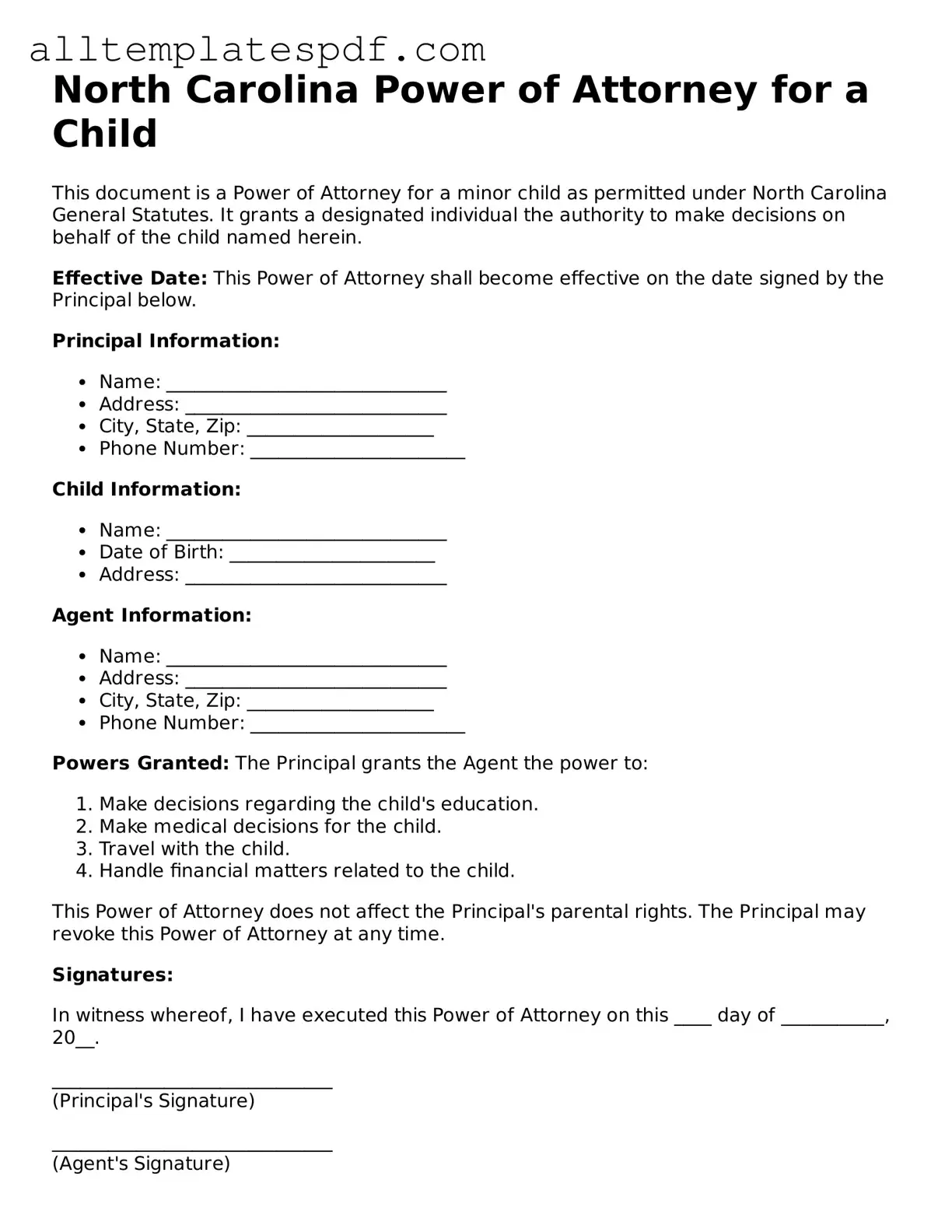Filling out a Power of Attorney for a Child form in North Carolina can seem straightforward, but there are common pitfalls that many people encounter. One frequent mistake is not clearly identifying the child involved. It's essential to provide the full name, date of birth, and any relevant identification numbers. This information ensures that there’s no confusion about which child the document pertains to.
Another mistake is failing to specify the powers being granted. The form allows for a range of responsibilities, from medical decisions to educational choices. Leaving this section vague can lead to misunderstandings later on. Make sure to outline exactly what authority you are giving to the designated agent.
Many people overlook the need for signatures. It may seem obvious, but both the parent and the agent must sign the document for it to be valid. Without these signatures, the Power of Attorney may not hold up in legal situations, leaving the child’s welfare in limbo.
Additionally, not including a start and end date is a common error. It’s important to clarify when the Power of Attorney begins and when it will end. This timeline helps prevent any confusion about how long the designated agent has authority over the child’s decisions.
Another mistake is neglecting to have the document notarized. In North Carolina, notarization is often required for the form to be legally binding. Skipping this step can render the document ineffective, which defeats its purpose.
Some individuals mistakenly assume that a Power of Attorney for a Child is the same as a guardianship. While both deal with the care of a child, they serve different legal purposes. Understanding this distinction is crucial to ensure you are taking the right steps for your situation.
Failing to keep a copy of the completed form is also a common oversight. After filling it out, it’s important to retain a copy for your records. This ensures that you and the agent have access to the document whenever necessary.
People often forget to inform relevant parties about the Power of Attorney. It’s wise to communicate with schools, doctors, and any other institutions that may need to know about the arrangement. This helps avoid any confusion when the agent attempts to exercise their authority.
Lastly, not reviewing the form before submission can lead to errors that could have been easily corrected. Taking the time to double-check all information can save a lot of trouble down the line. A thorough review helps ensure that the document serves its intended purpose effectively.

